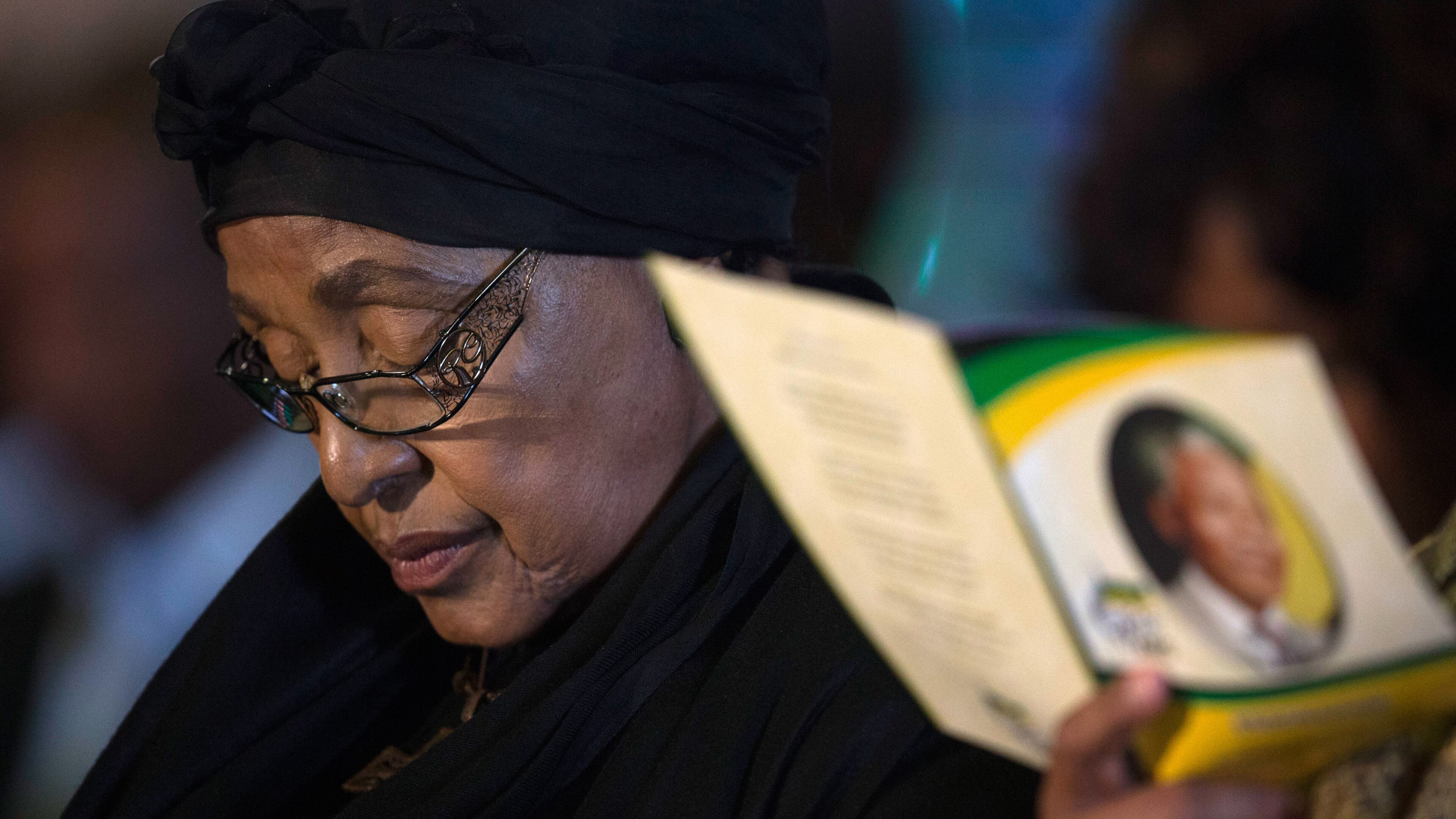Felicia Mabuza-Suttle recalls her ‘big sister’ Winnie Mandela
Felicia Mabuza-Suttle always admired the fiery Winnie Madikizela-Mandela’s courage as an anti-apartheid activist and politician.
She knew of Winnie Mandela growing up in South Africa “because we all looked up to her.”
She watched as Mandela, a trained social worker, grew to be a formidable opponent fighting apartheid.
They dined together or had high tea at the Hyatt Regency Johannesburg.
She followed Mandela as she raised two daughters alone as her husband, Nelson, who would later become president of South Africa, spent more years in prison than by her side. The Mandelas later divorced.

“She suffered tremendously and we are all where we are today because of Winnie,” said Mabuza-Suttle, who became one of South Africa’s most popular talk show hosts. “I admired her for her bravery. Images of her single-handedly fighting the brutal police force remain indelible on my mind.”
Mandela, known as “Mother of the Nation” or simply “Mama” Winnie, died Monday at age 81.
Related: Mandela Day in Atlanta: Activist visits city in 1990
Related: Winnie Madikizela-Mandela: A life of struggle
Her spokesman Victor Dlamini said in a statement that she died "after a long illness, for which she had been in and out of hospital since the start of the year," according to The New York Times.
Mabuza-Suttle, who lives in Roswell, called her “big sister.” Mandela called her “little sister.”
Related: Twitter mourns for anti-apartheid activist Winnie Mandela
She last visited Mandela last year when she was in the hospital. They gave each other copies of their respective books. They talked and laughed.
“I’m destablized,” said Mabuza-Suttle, who once worked for the city of Atlanta. “I’m paralyzed.”
Mabuza-Suttle spent Monday morning watching old television interviews with Mandela, including when Mandela was a guest on her show. She texted friends back home and reached out to Mandela’s two daughters.
“Winnie kept the Mandela name alive,” she said. “Whether we loved her or hated her. Winnie did more than we could ever imagine.”
She recalled an interview with Mandela when she talked about the pain she had endured over the years.
Her family was separated for decades. Her home was watched. Her phone was tapped.
She was arrested. She was accused of corruption. She had no sympathy for those she considered traitors to the cause.
Some people - even some black South Africans - said she went too far.
Still, she remained a beloved figure.
Perhaps one of the most iconic photographs of her is when Nelson Mandela was released from custody in 1990. She is shown by his side with her fist raised in defiance and victory.
“People say she was so controversial,” said Mabuza-Suttle. “What controversial side are they talking about? I’m giving her all praises.”
She knew another side of her.

She was, ironically, “very humble in spite of what people saw. She spoke softly and always had her head down until she was in a rally. “
She would hold up her fist in the black power sign and shout “Amandla’!” a Zulu and Xhosa word which means strength or power.
“When a black woman shows strength and says enough is enough, she’s called controversial. That’s the part I don’t understand.”


